Richard Gill: Force of Nurture
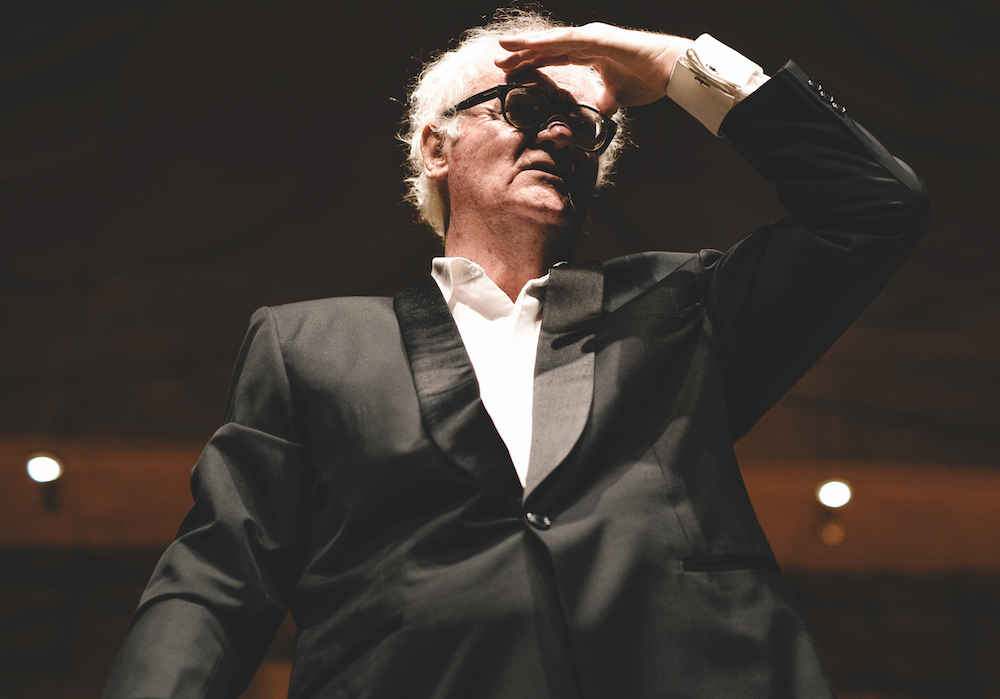 Richard Gill, 1941 – 2018. Photo © Nick Gilbert
Richard Gill, 1941 – 2018. Photo © Nick Gilbert
The beloved Australian conductor and music educator, who died of cancer in October, meant so much to so many across the music industry and beyond. Those who carry on his legacy share their stories of the larger-than-life figure who, through his tireless, fearless advocacy for music and music education, touched us all.
Everyone has a Richard Gill story. The beloved conductor and educator’s influence reached across generations and cut through every section of the classical music industry and beyond. In the wake of his death on October 28, stories and memories have been flowing thick and fast in comments online, birthday wishes – Gill would have been 77 years old on November 4, the occasion marked by a concert at Sydney’s City Recital Hall – and in concerts celebrating his life. In the weeks following his death there were few concerts or performances that weren’t dedicated to the memory of one of Australia’s most passionate artistic leaders.
“Every person in the orchestra has their own Richard Gill story,” conductor Nicholas Milton told the Willoughby Symphony Orchestra’s audience the day Gill died, the heartbreaking sound when he broke the news a sign not everyone had seen it online that morning. It would be almost impossible to find anyone associated with music in Australia who hasn’t felt Gill’s influence, directly or indirectly, through his artistic leadership, his vital, inspired – and at times acerbic – personality and his tireless advocacy of music education for all.
 Richard Gill at home while guest editor of Limelight, December 2014. Photo © Jason Busch
Richard Gill at home while guest editor of Limelight, December 2014. Photo © Jason Busch
At Limelight we were devastated to hear the news of his death, heavy with the knowledge that Gill’s column for the November issue – in which he wrote with such excitement about the building earmarked for the new school in Muswellbrook to be driven by his educational philosophy – would be his final column for us. Gill has been an incredible support to the magazine and a constant presence, both in and out of his column, never afraid to weigh in on the issues he believed in, ever quick with a pithy, and often scathing, sound bite.
“I’m a bulldozer,” he told Limelight’s former Editor Clive Paget in an interview for his 75th birthday. “I’ve got a loud mouth, and I go for the jugular.”
“I believe that great teachers change lives no matter what they teach.” – Richard Gill, Limelight, August 2016
“My earliest memory of Richard Gill – I arrived in Australia in 2008 – was as a bewigged Beethoven lookalike on Spicks and Specks on ABC TV,” Paget, who is now Editor at Large, says. “He seemed game for a laugh, but a serious-minded musician? How wrong I was. Of course, Richard had many, many sides. In aid of the cause, he would do anything if he thought it would attract the man, or especially the child, in the street to dip a toe into classical music.”
“The first time I met the man himself was at a Guest Editor photo shoot at his house,” Paget says. “Richard’s playful side meant he didn’t baulk at dressing festively for his issue of the magazine, but he was also right in the middle of writing music for an education project, so whenever we were testing camera angles, he would dash back to the drawing board – literally – and pen a few more bars. This phenomenal energy and capacity for doing at least two things at any given time would define my relationship with Richard over the last five years.”
The first thing Paget did on becoming Editor of Limelight was to invite Gill to become a regular columnist. “We’d meet every few months at 8am (his request) at a café in the Queen Victoria Building,” he recalls. “Richard would invariably show before they’d even unlocked the building. Not only was his copy fiercely independent and provocative – he proudly considered himself beholden to no purse-holder – he thrived on deadlines and never, ever delivered late. Just like Beethoven, he could be a curmudgeon, and our readers loved that. But no one was more passionate or selfless in the cause.”
“We deliver an arts education to children because introducing and teaching children about music, dance and visual arts, for example, are good things to do. We need no other rationales and reasons.” – Richard Gill, Limelight, November 2016
Gill’s impassioned defence of high quality music education, taught by trained specialist music teachers, and his vociferous attacks on NAPLAN and the inadequacies of Australia’s education system, became a rallying cry for musicians and music teachers.
“In this race for literacy and numeracy, a process of national dumbing-down is numbing children’s and teachers’ minds,” he raged in a column in 2016. “On being asked what does NAPLAN stand for, I proffer: Numbed and Partially Literate and Numerate. Is this really good enough for our children?”
“Bulldozer, inspiration, mentor to thousands, Richard was all of these and more,” Paget says. “So let’s give thanks for a life well lived – or should that
be two or three lives?”
Indeed, Gill seems to have achieved more in one lifetime than most of us could manage in three or more – especially when you take into account the number of organisations he has founded or led, and the number of people he has touched – and a common thread emerging in the stories being told about him is his extraordinary capacity as a tireless, seemingly indefatigable worker, who didn’t slow down even as his body failed him.
“Last year when I was in hospital for colorectal surgery, Richard Gill was in a nearby bed,” SBS newsreader Anton Enus wrote on Twitter. “He never stopped working, his mobile phone red hot! His delightful wife found time to chat to my partner and me. I kind of assumed this musical force of nature was indestructible. Vale.”
 Richard Gill conducting the Australian Romantic and Classical Orchestra. Photo © Nick Gilbert
Richard Gill conducting the Australian Romantic and Classical Orchestra. Photo © Nick Gilbert
Gill’s dogged enthusiasm is evident in the stories of those who worked closely with him. Clarinettist Nicole van Bruggen, who along with Gill and violinist Rachael Beesley formed the period instrument band Australian Romantic & Classical Orchestra, first came into contact with the conductor in 2012, performing in the pit for Victorian Opera’s The Marriage of Figaro.
“Richard’s intuitive knowledge and understanding of HIP (Historically Informed Performance) combined with his infamous energetic approach and wicked sense of humour produced extraordinary musical results,” she says. “He created an atmosphere that welcomed input from all, and nowhere was this more evident than in the first student workshops that he presented together with Rachael and I, as part of this Victorian Opera season. This was where our chemistry as a trio was first sparked.”
When Gill heard that Van Bruggen had experience founding and managing orchestras, he moved fast. “We had a brief meeting at interval, and the Australian Romantic & Classical Orchestra was alive. This quickness to react was one of Richard’s defining features; his mind functioned at supersonic speed,” she says. “We didn’t always agree, but the ensuing sparring of opinions was what made it such a successful team. By working so closely with him and watching him in action, I learned how to take a stand, make a decision, and act on it immediately. He always had several simultaneous pots on the boil and he didn’t have time to sit back and ponder – during busy periods there would be dozens of phone calls between us every day, each one resulting in immediate action.”
“Richard had an uncanny flair for connecting deeply with people from all walks of life. To witness him engaging with children of all ages as well as with seasoned music connoisseurs, concert (and even television) audiences, our patrons and of course, our musicians, was pure delight,” Van Bruggen says. “Richard was at his most brilliant in music education. I was privileged to be part of his many workshops, and out of these grew our Voyage of Musical Discovery and Young Mannheim Symphonists education programs. I promised him that we would continue his vital work with young musicians, and we will make him proud.”
“These past five years working alongside Richard have been the highlight of my professional life – I cannot imagine that anything will ever surpass this. The mutual respect between Richard and myself has touched me more deeply than I could ever put into words.”
“The crumbling of the ancient male bastion is slow but exceeding sure. Women are now occupying their rightful place as potent, imaginative and vital contributors to a slowly growing culture of new music.” – Richard Gill, Limelight, September 2017
 Richard Gill with Bernadette McNamara and Louise Barkl. Photo © Heath Holden
Richard Gill with Bernadette McNamara and Louise Barkl. Photo © Heath Holden
To Bernadette McNamara, Program Manager of the National Music Teacher Mentoring Program Gill initiated four years ago – a regular subject of his columns – who worked closely with Gill on the development of the program, he was “a visionary leader, with the compelling wit, masterful persuasiveness, passion, energy, drive and sheer doggedness to make things happen.”
“And make things happen he did,” she says. “Richard’s passion and enthusiasm knew no bounds. He was always generous with his time and had an amazing work ethic. He was still writing resources for teachers and mentors up until a few days before he passed away.”
“Since its inception the mentoring program has touched students in nearly every education jurisdiction. It was spell binding watching him weave his magic with mentors, teachers and students, inspiring them to achieve the seemingly unattainable.”
McNamara also has fond memories of the café at the QVB. “We referred to it as The Office,” she says. “Meetings with Richard were always such an absolute joy. He would listen, consider each issue, make a decision and then say next. We would whiz through the list, interrupted with laughs and anecdotes. In between he would banter and joke with the waiter in Italian. I always came away from the meetings appreciated, inspired and energised.”
“Richard had the same energy and enthusiasm he had 40 years ago as my History of Music lecturer and choir conductor at the Sydney Conservatorium of Music when I was studying to be a high school music teacher,” she says. “Thank you Richard for giving all of us a part of you and taking a part of us into your life. Your dreams will live on.”
 Richard Gill hosting a roundtable with young musicians, recorded for Limelight, October 2014
Richard Gill hosting a roundtable with young musicians, recorded for Limelight, October 2014
Gill was also an inspiration and mentor to a generation of younger conductors, including the Adelaide Symphony Orchestra’s Principal Conductor Nicholas Carter, who became the youngest leader of an Australia state symphony orchestra when he was appointed in 2016. Conductor Sam Allchurch, who takes over from Gill as Music Director of the Sydney Chamber Choir, also credits Gill as having a “profound and formative” influence.
Allchurch first met Gill as a participant in the Sydney Symphony Orchestra’s Sinfonia composition program. “I had no particular talent for composing but was attracted to apply on the basis of Richard claiming that ‘composition was the highest form of musical discipline’,” he says. “As a very formal and serious school boy, it took me a while to get used to his forte greeting of ‘Sammy!’ from across the room. I then watched as he took my student efforts and refashioned them into something better, a fantastic exercise in seeing music objectively.”
“It was when I had returned to Sydney after postgraduate study in the UK that I really benefited from his wisdom and guidance, through Sydney Chamber Choir,” he says. “After a while working with the choir by taking the odd rehearsal or being an extra set of ears in the hall, it was a great delight to pick up the phone to his crisp, articulated tones – ‘how would you like to conduct a concert next year?’. After much babbling from me, Richard very kindly but very swiftly concluded the call with ‘well, that’s great. Send me a program’. We then began to meet reasonably often where Richard would opine the virtues of Bruno Turner’s early music, or whether the Chamber Choir should program Stockhausen’s Stimmung, or some other matter of choral importance. His rehearsals were masterclasses in seeing the wood for the trees, without ever losing sight of the detail. And when I was appointed by the SCC to succeed him as music director, he was a source of sage advice on how to get the best out of the singers.”
“Richard was passionate about music at every level. Naturally his most public and impassioned advocacy of music education is the core of his legacy. But he was just as passionate and at home working with a highly skilled set of singers on some intricate piece of Brahms or Machaut. Through this, he showed that we can and should have it all when it comes to music.”
Gill was also an ardent advocate for Australian music, promoting the work of numerous composers, including Nigel Westlake (who in a recent piece for the Australian Music Centre’s Resonate affectionately described Gill’s teaching style as “Carl Orff meets Seinfeld on steroids”) and Ross Edwards. “I’ve done a lot of Australian music – a lot of Australian music – and in that plethora of repertoire that I’ve conducted, there was a considerable amount of amateurish, ill-crafted, thoughtless, unmusical composition,” Gill, typically blunt, told Limelight in an interview ahead of the 75th birthday concert he spearheaded for Edwards this year. “I do it because you have to do it. If you don’t give it a go and it never gets an airing, then you really can’t talk about it. So my view is you air it, and you decide, OK, I’m never going down that path again.” He was quick to point out he never felt that way with Edwards’ work.
“At a recent Music Education conference in Sydney, I said that one of my jobs will be to witness the decline and ultimate fall of NAPLAN. This idea was greeted with cheers and thunderous applause.” – Richard Gill, Limelight, March 2018
It is education for which Gill fought most fiercely, however. “We need to acknowledge that musical literacy is a fundamental right of every child, and that improvising and composing are also fundamental components of a musically balanced education and at the forefront of the reasons for doing music,” he wrote in a 2016 column, and his passion for education was a fire that never dimmed.
“The biggest challenge we have in this country is education and it’s not just music education, it’s education generally,” Gill told Limelight in a phone call from his hospital bed, having been awarded Creative Partnership Australia’s Arts Leadership Award. “The education system nationally is an absolute disgrace, because it’s interfered with by bureaucrats and politicians who know next to nothing about education. If they left it to the teachers and the principals to sort it out then they would. But once a bureaucrat gets involved it becomes political and education should never be political. We will never get this country right until we sort education out.”
 The Dam Busters outside Richard Gill’s house. Photo © Jacqui Smith
The Dam Busters outside Richard Gill’s house. Photo © Jacqui Smith
It was Gill’s passion, and uncompromising fervour, that inspired such love amongst the musical community. Love that has been shown in the sell-out crowds and wait-lists to the concerts in his memory, the legions of fans watching live streams and sharing their love and stories online, in the pop-up brass band performance – organised by the Sydney Symphony Orchestra’s Associate Principal Trumpet Paul Goodchild – of the Dam Busters March outside Gill’s house the afternoon before he died.
“These days I tend to cry easily at such moments, but I was completely overwhelmed. I could not wait to explore the spaces, imagine the children wandering through the rooms. What a remarkable gift! The Age of Enlightenment is not over… we’ve just had a very long intermission.” – Richard Gill, Limelight, November 2018
The stories here are, of course, just a fraction of the Richard Gill stories. Many more will no doubt be shared, and yet more will live on in the people he has taught, worked with and inspired. Perhaps most significantly, they will live on in the school that is to bear his name.
The Muswellbrook Richard Gill Music Academy, slated to open in 2020, will not just teach its own students, but will provide specialist teacher training for a new generation of music educators who will be deployed to schools across Australia, assuring the continuation of Gill’s legacy.
“Because music depends quintessentially on listening, encouraging children to listen actively (as opposed to simply hearing), and then discriminating and identifying sounds, are fundamental processes on the path to the getting of wisdom. Movement, essential for a healthy life, goes hand-in-hand with music. Starting each day this way helps unite a community, promotes a sense of joy and has powerful effects on brain function.
I have been working on and off at this idea for a lifetime. Finally, in Muswellbrook, I meet the man whose unfailing love for his shire and community, demonstrates that altruism and idealism are alive and well. Muswellbrook is on the verge of a renaissance. When difficulties arise, as they surely must, I hope reason will prevail and that the children’s needs will come first. Thank you Martin Rush, Councillors all, and citizens of the Shire of Muswellbrook. The last words belong to the Irish poet Arthur O’Shaughnessy:
We are the music-makers,
And we are the dreamers of dreams,
Wandering by lone sea-breakers
And sitting by desolate streams;
World losers and world forsakers,
On whom the pale moon gleams:
Yet we are the movers and shakers
Of the world for ever, it seems.”Richard Gill, Limelight, November 2018
Richard and Me…
Kim Williams, student, friend and media executive
 Kim Williams
Kim Williams
When Richard Gill was not at all well and was still in hospital, we both had a meeting with the visionary mayor of Muswellbrook, Martin Rush and the economic development manager for Muswellbrook Shire, Gerry Bobsien. It took place in a small meeting room off the foyer of the hospital when Richard had an extreme skin reaction to recent chemotherapy. Richard managed it as if this was all in an ordinary day’s work.
Martin and Gerry were pure professionals as if they took meetings in hospital facilities every day and with a respondent who looked alarmingly as if he had leprosy. Richard announced that I would be the chair of the new school. Over the following weeks he and I put together the Purpose Statement and the Philosophy for the school. Back at home Richard continued working assiduously, also writing a new composition text for young students right up until the last few days of his life.
He never surrendered to maudlin views of his stage four cancer condition, nor did he have any capacity for self-pity. He remained disciplined in his affirmative, positive disposition and focussed on his dearly loved family, close friends, music and musicians. He was like that throughout his life – energetic, demanding, loving, indefatigable, thoughtful and imaginative in his determination to make a difference in his devotion to advocate for music in society. These were the watchwords of his life as was a devotion to the inalienable rights of the young to a fine education with music at its centre.
I knew Richard for 55 years from a young high school student through the rest of my life. Wherever we were we stayed in touch, swapped notes, had stand up rows and long exchanges about the things that mattered to us but always there was music.
Whether it was opera, a masterclass, a performance by an orchestra or choir or for that matter a simple teaching session he was the force field that united and inspired an army of followers across the decades. He was loved because what he did and said was genuine and necessary reflecting an unwavering devotion to music as representing the essence of humanity’s creativity and its better angels. His courage and conviction were irresistible. His defence of talent and imagination knew no bounds and his desire to leave this world a better place was exemplary. They don’t come better in creative life – long live his legacy.
Ross Edwards, composer
 Ross Edwards. Photo © Michael Mortlock
Ross Edwards. Photo © Michael Mortlock
Some of my first memories of Richard stem from the early 1970s, when we were both lecturers in the Sydney Conservatorium’s School of Composition. Our personalities could hardly have been more dissimilar: he, a born teacher who communicated vividly and effectively with broad strokes, I, a classic introvert who spouted facts and pored over minutiae. What gradually brought us together to a point of mutual respect and affection was, of course, music, our lifeblood, in which we both recognised the key to a better society – a better world.
I remember Richard’s suspicion of composers in the days of what is now described as ‘plink plonk’ – the residue of the atonal period, relentlessly being pushed by one of our colleagues. In the wave of freshness and rekindled melodic impulse that followed, he conceded that we composers probably did, after all, have good ears, and began to perform our music. In fact, he became an enthusiastic advocate for Australian music, including it in his education programs, pulling it apart and showing audiences, young and old, how it worked. He had a great gift for pinpointing and adjusting moments in a score that might be improved. At a rehearsal of my Mass of the Dreaming with the Sydney Chamber Choir he suddenly stopped conducting and said “this phrase would sound better up an octave – listen.” And when he demonstrated, we all said, with one voice, “Yes!” An affirmation that might be well applied to the life and work of this marvellous man.
Nicholas Carter, conductor
 Nicholas Carter
Nicholas Carter
Richard’s influence on my musical development and career was enormous. So much so that I really can say with certainty that I wouldn’t be doing what I’m doing now had it not been for his tireless dedication to creating a decent musician out of me!
Having sung with him in 2003 on a children’s opera The Little Sweep for OzOpera, I summoned up the courage one day to ask if he would teach me conducting. I was 18 at the time, halfway through year 12. At first a little dismissive (just testing my tenacity I’m sure), I didn’t take no for an answer and soon we were having lessons analysing Bach counterpoint and Verdi scenes. His encyclopedic knowledge was overwhelming and inspiring. He didn’t just teach me things, rather he taught me to teach myself and to know what there was to be learnt and discovered. The cultural treasure chest had been opened and he guided me through Monteverdi, Keats, Picasso, Schopenhauer – endless topics and endless discussions.



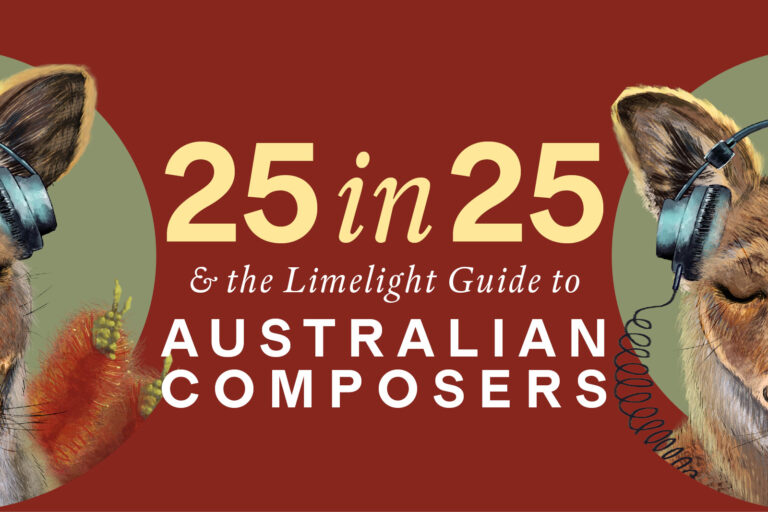
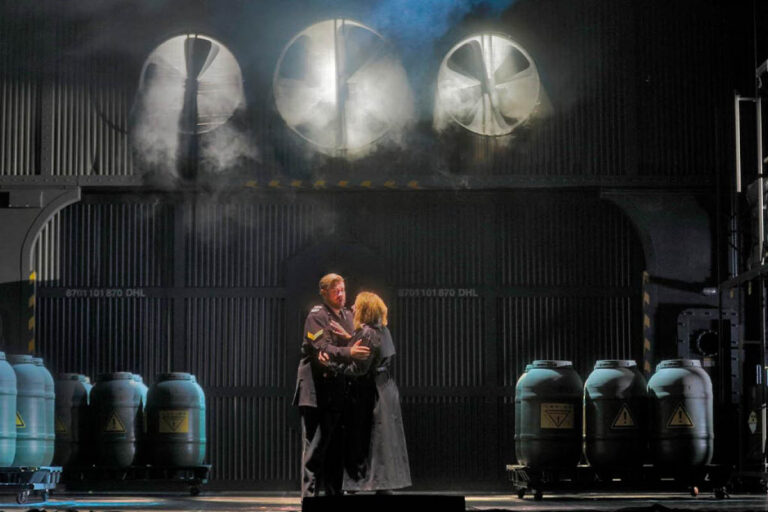

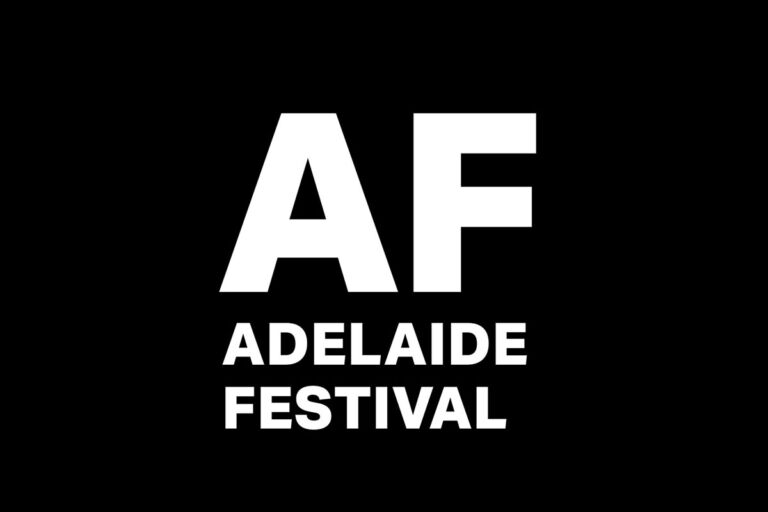
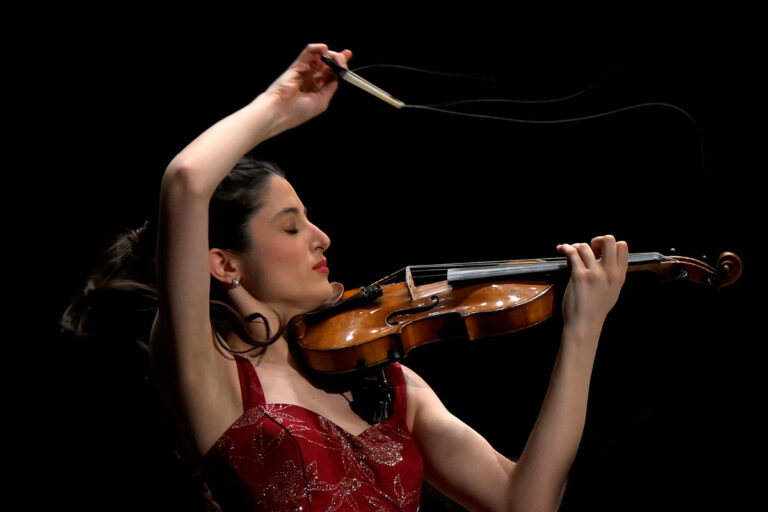



Comments
Log in to start the conversation.